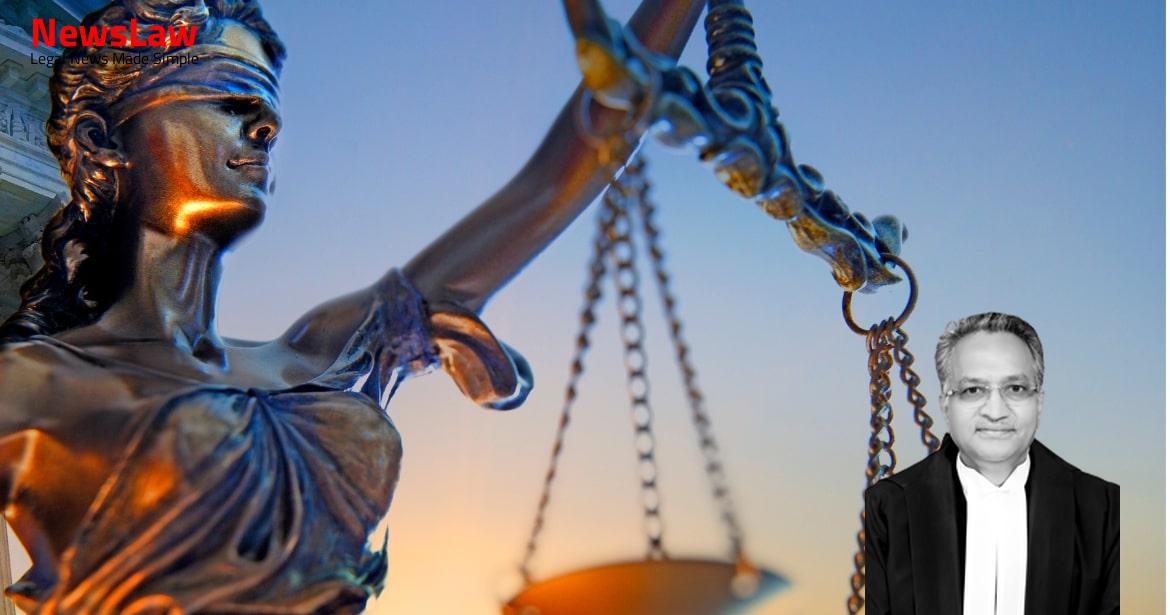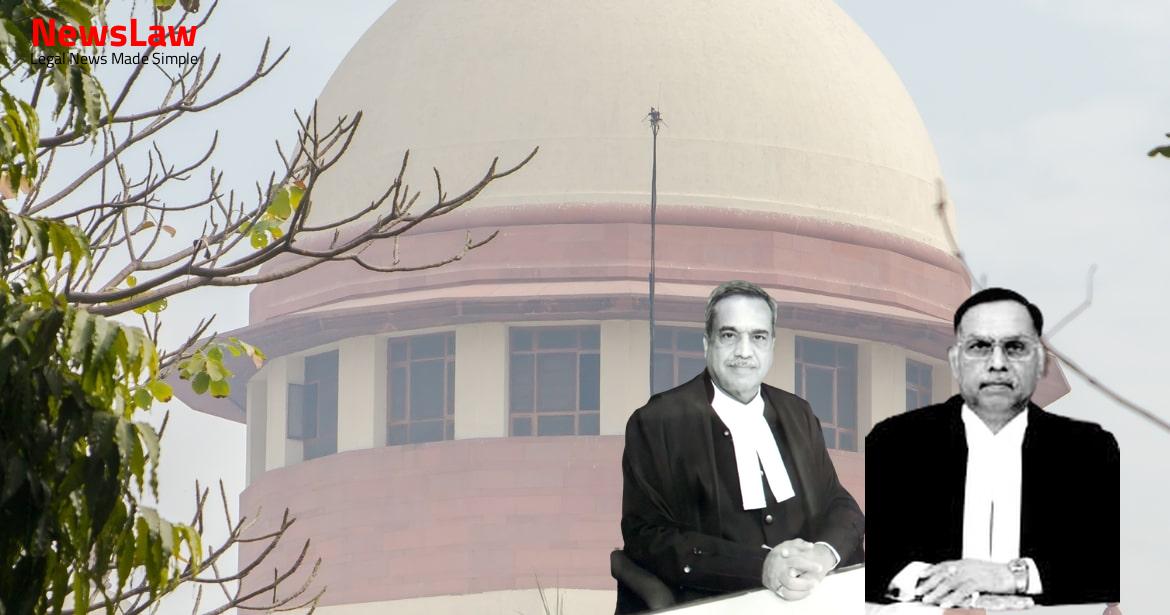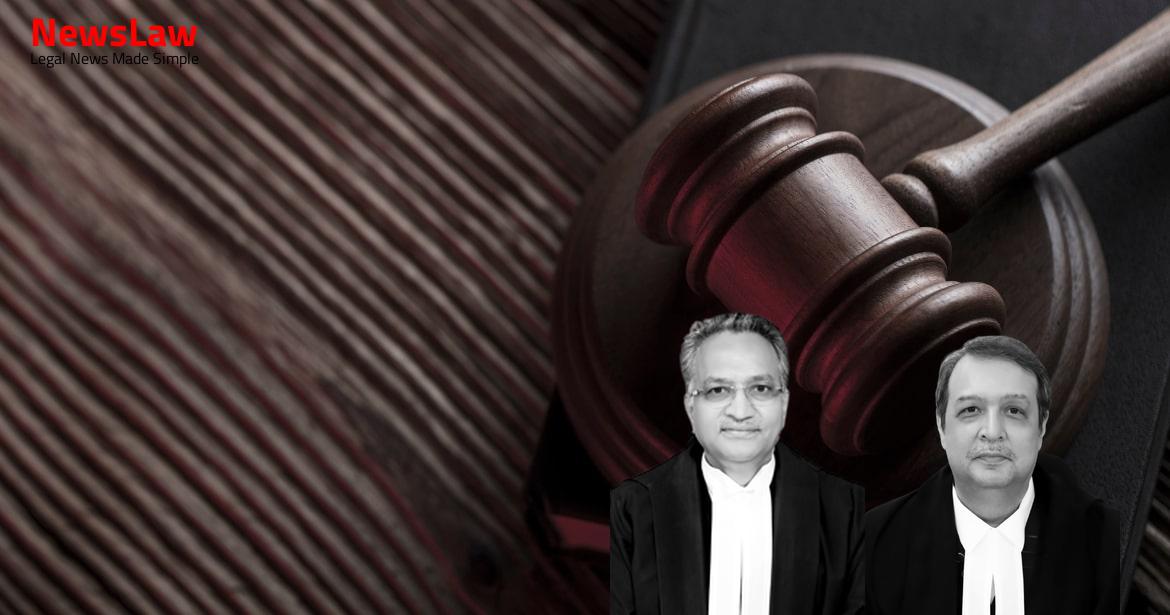Explore the High Court’s in-depth legal analysis of the prior approval process for organized crime offenses in this case. The court’s examination of the prerequisite for approval under the Karnataka Control of Organised Crimes Act, 2000 sheds light on the importance of credible information and the nature of organized crime syndicates. This blog post focuses on the court’s nuanced interpretation of the law, emphasizing the need for a thorough evaluation before granting such approvals.
Facts
- High Court partly allowed the writ petition and quashed the order of prior approval under the Karnataka Control of Organised Crimes Act, 2000 against Mohan Nayak N (private respondent).
- Appeals relate to the incident where journalist Gauri Lankesh was shot dead by unknown assailants.
- Crime registered and chargesheet filed against accused persons.
- Approval given to invoke organized crime provisions against accused.
- SIT formed to investigate the crime, and chargesheets filed against multiple accused.
- Investigation revealed involvement of accused in organized crime syndicate.
- Additional charges under various sections of IPC and Arms Act invoked.
- Private respondent arrested in connection with the crime.
- The prosecution imputed that N acted on instructions from co-accused Amol Kale to rent a house for the syndicate.
- Accused Nos.3, 5, 7 to 9, 11, 13 to 16 were not charged in any case for cognizable offences.
- The High Court considered previous cases and opined that at least two chargesheets were needed against the petitioner Mohan Nayak.
- The Court found that the prosecution relied on irrelevant decisions.
- N was not engaged in continuing unlawful activity for organized crime.
- The High Court examined the legality of the order granting approval under Section 3 of the 2000 Act.
- The High Court noted objections raised by the prosecution in this matter.
- The challenge was to the order of the Commissioner of Police granting approval under the 2000 Act.
- The High Court concluded that N cannot be further proceeded against and partly allowed the writ petition by quashing the order and chargesheet against him.
Also Read: Legal Analysis on Diplomatic Immunity Exception Case
Arguments
- The petitioner challenges the order Annexure-A on the grounds that he was not involved in continuing unlawful activity as per Section 2(1)(d) of the Act.
- The charge sheet allegations do not meet the criteria for organized crime under Section 2(e) of the Act.
- The petitioner argues that the order Annexure-A violates his personal liberty under Article 21 of the Constitution of India.
- The appellant-Kavitha Lankesh filed an appeal questioning the view taken by the High Court.
- The State of Karnataka also filed a separate appeal challenging the High Court’s decision.
- Mr. Huzefa Ahmedi appeared for the appellant-Kavitha Lankesh as the learned Senior Counsel.
- Mr. V.N. Raghupathy represented the State of Karnataka in the appeal.
- Mr. Basava Prabhu S. Patil appeared as the learned Senior Counsel for the private respondent.
- The FIR was initially registered for offences under Section 302 of the IPC and Section 25 of the Arms Act based on the complaint by the appellant-Kavitha Lankesh.
- The nature of the offence led to the registration of the FIR.
Also Read: Legal Analysis: Forfeiture of Properties under the 1976 Act
Analysis
- Prior approval under Section 24(1)(a) of the 2000 Act does not require the competent authority to analyze specific roles of each accused before granting approval.
- The investigation after registration of the offense of organized crime will unravel the specific roles and identities of those involved.
- The key enquiry for the competent authority is whether there is discernible information about the commission of organized crime by the syndicate.
- The High Court erred in its analysis and application of the law regarding prior approval for organized crime offenses.
- The decision to grant prior approval is based on the presence of credible information about the offense of organized crime.
- The Commissioner of Police’s satisfaction was recorded based on tangible material regarding the commission of organized crime by the syndicate.
- The offense of organized crime can be recorded by a police officer upon obtaining prior approval not below the rank of Deputy Inspector General of Police.
- For offenses under Section 3(1) of the 2000 Act, prior approval is necessary based on credible information, not on past chargesheets against the individual.
- Investigation findings revealed various activities of the syndicate like arms training, bomb-making, and intentions to instil fear and harm.
- The High Court’s judgment glossed over core facts and erred in its interpretation of the law. The focus should be on the organized crime offense, not individual offenders.
- At the stage of taking cognizance, the competent court takes cognizance of the offense and not the offender.
- Prior sanction under Section 24(2) may require an inquiry into the specific role of the offender in the commission of organized crime.
- If the role of the offender is that of a facilitator or abettor, the requirement of the named person being involved in more than two chargesheets is not relevant.
- An offender can be proceeded under the 2000 Act if there is a nexus with an accused who is a member of an organized crime syndicate or the nexus is related to the offense in the nature of organized crime.
- The conclusion reached by the High Court in partly allowing the writ petition filed by Mohan Nayak is considered manifestly wrong and cannot be accepted.
- The writ petition filed by the private respondent, Mohan Nayak, was rejected.
- The High Court overlooked that the writ petition was filed after sanction was accorded by the competent authority under Section 24(2) and cognizance was taken by the competent Court for the offence of organized crime committed by members of an organized crime syndicate including the writ petitioner, which was not challenged.
- The High Court did not analyze the effect of these developments in disentitling the writ petitioner from belatedly claiming relief in respect of prior approval under Section 24(1)(a) of the 2000 Act.
- The High Court exceeded its jurisdiction in quashing the chargesheet filed against the writ petitioner for offences punishable under Section 3(2), 3(3), and 3(4) of the 2000 Act at the stage of prior approval under Section 24(1)(a).
- Despite the above points, the appeals should be allowed, and the judgment and order of the High Court should be set aside.
- No opinion has been expressed on the merits of other possible remedies available to Mohan Nayak.
Also Read: Rectification of GST Returns: Legal Analysis by High Court
Decision
- The judgment is limited to considering the validity of the prior approval dated 14.08.2018 granted by the Commissioner of Police, Bengaluru City, in connection with a specific offence.
- There are no infirmities found in the approval in relation to the private respondent-Mohan Nayak. It is noted that Nayak had a close connection with key individuals involved in organized crime, namely Amol Kale and Rajesh D. Bangera.
- The appeals are allowed, setting aside the High Court’s judgment and dismissing the writ petition filed by Mohan Nayak. Any pending applications are disposed of.
Case Title: KAVITHA LANKESH Vs. THE STATE OF KARNATAKA (2021 INSC 654)
Case Number: Crl.A. No.-001236-001236 / 2021



